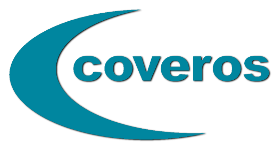Some of us thrive when working in a remote setting where we can focus exclusively on the task at hand. Others excel when working alongside and collaborating with coworkers in an office. Different settings help energize us so that we can be most effective as individuals and as employees.
Throughout my career, I have enjoyed working in an office full time and, also, part-time under a hybrid model. The camaraderie of those years produced great results, lifelong connections, and impactful lessons. For the past three years, however, my role has been completely remote and has provided me with valuable benefits to match my changing career, personal interests, and needs.
As a remote recruiter, I leverage modern software tools to support a dispersed team of hiring managers successfully. I also enjoy more time outside of work to engage in volunteer opportunities and to help serve my family.
As more companies adopt remote and hybrid work options, employees gain opportunities that provide both additional flexibility and financial benefits. Eliminating a commute can produce real time and cost savings for a worker.
When I compare being in an office full-time to being fully remote, I appreciate the ten additional hours of personal time that I have each week. Individually, I also save over $10,000 per year in transportation, parking, and lunch costs. Global Workplace Analytics supports my experience reporting that employees who telecommute even half-time save between $600 and $6,000 per year.
The rewards of remote work may vary depending on the length of one’s commute, the volume of traffic, and the cost of tolls and parking. The intangible benefits of reduced commuting stress and increased personal flexibility combined with significant savings appear to tip the scale in favor of remote work for many individuals like myself. Everhour reports that over 26 percent of U.S. workers will be working remotely through 2022.
But, although 59 percent of workers prefer the option of remote work, only 16 percent of employers currently offer it.
There are, admittedly, some roles where being “in-person” is inherent to job performance. For example, while telemedicine continues to gain traction, replacing some office visits, advances in technology have not yet broadly answered how one can receive a physical exam, update shots, or get blood work drawn without bringing the patient and healthcare provider together physically.
As a professional services consultancy, however, Coveros benefits from a wide range of technology that supports a fully remote workplace. Our employees have proven to our clients that we can meet or exceed their expectations while working remotely. The increasing acceptance of remote consulting services lifts the geographic boundaries for finding incredible talent.
Companies who embrace fully remote roles avoid expensive relocation costs when hiring talent outside of one’s headquarters. Likewise, candidates can consider interesting opportunities in professional service careers knowing that the traditional burden of onerous, weekly travel is not a job prerequisite. Candidates and employers may both benefit from the opportunity to negotiate mutually favorable compensation terms outside the boundaries of their “home” markets.
Coveros team members currently reside in ten states and three different time zones. Our consultants enable agile, DevOps, application security, and test automation software solutions for a variety of customers and industries. Coveros instructors conduct virtual training for over 50 different courses, many which facilitate professional certifications. Our media team virtually supports multiple webinars each month. And our conference professionals remotely organize and market four industry-leading events annually. From software engineers to instructors and from graphic designers to marketing managers, Coveros embraces an array of remote careers.
Being among the limited employers now offering remote work as an option, Coveros seeks a great match beyond a candidate’s desire to work completely remote. My 15 years of experience with candidates is that they too desire more for their careers than just a remote office.
Remote workers who get things done can thrive professionally and personally, realizing career growth, work life balance, financial savings, and personal flexibility. As employees continue to press for the option of remote work, responsive employers will continue to review roles and the benefits of adding remote options for their employees and organizations.
As a recruiter, aligning the career path and culture that a candidate seeks with a manager’s hiring goals aids organizational success and decision-making. When organizations with remote workforces thrive, they show other companies how remote opportunities can help retain and attract talent. I expect the 2022 gap between the 59 percent who prefer remote work and the 16 percent who offer it will shrink in the future. The flexibility and financial benefits for companies and their people are material and not easily dismissed.



